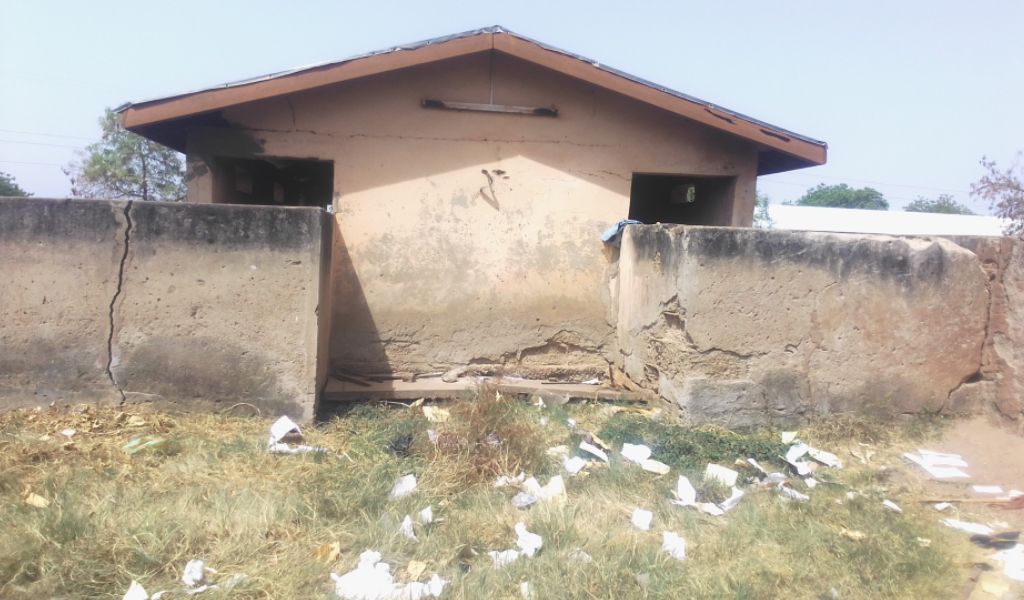In September 2017, the Government of Ghana introduced the Free Senior High School (FSHS) policy to ensure inclusive education for all and support the attainment of Sustainable Development Goal (SDG) four. Since then, there has been a massive increase in enrolment in Senior High Schools (SHSs). In the 2017-2018 academic year, SHS enrolment was 424,092 students, approximately a 72 percent increase compared to the 2016-2017 academic year of 260,210.

Existing studies in Ghana have highlighted poor conditions of basic sanitation facilities in SHSs, and poor attitudes of students towards Water, Sanitation and Hygiene (WASH) in Ghana, leading to girls absenteeism and health concerns. However, there is limited information on how the increase in enrolment has affected WASH in SHS in the country. There is a critical need for reliable baseline WASH data, to support evidence-based analysis and strategic planning for improving WASH in the SHS, especially in a post-Covid-19 world.
To address this issue, in 2023 the IDS Ghana Development Hub held a stakeholders meeting comprising academics, practitioners and policy actors to discuss how to link research to action. The discussion highlighted the need for synergetic action to address context-specific challenges in water and sanitation. The discussion led to a baseline study on WASH in Senior High Schools, focusing on the Senior High Schools in Greater Tamale.
Tamale was chosen as the focal area for this research due to the strong physical water scarcity in the area which affects the general public as well as students at SHS boarding houses. The approach adopted for the study was mixed-method, comprising a survey and interviews to evaluate the state and adequacy of WASH facilities in eight of the thirteen SHSs in Tamale.
Why this study is important to WASH action in Ghanaian schools:
- It highlights the current state of WASH in the Senior High Schools in Greater Tamale.
- It contributes to establishing baseline WASH situations in the schools, providing data that will serve as a benchmark for further projects aimed at improving sanitation in schools.
- The baseline document produced from this project will assist the city authorities and other developmental agencies in the planning and implementation of sanitation activities in the schools.
- It will promulgate policies and advocacy aimed at improving sanitation in second-cycle schools in Tamale through stakeholder workshops and publications.
Water and sanitation challenges in schools
The preliminary findings highlighted the inadequacy and deplorable state of WASH facilities in the schools. 54.5 percent of the students reported diseases (diarrhoea, rashes, and infections) that they attributed to poor WASH conditions in the schools. These disease incidences were confirmed through interviews with authorities in some of the schools. About 79 percent of students do not have access to water and depend on water from unimproved sources, which affects sanitation and hygiene in their schools.
Approximately 55 percent of students also indicated that they practise irregular handwashing and 15.5 percent of students do not use toilet facilities in the schools due to their poor state, and 56.6 percent (out of 136 students) practice open defecation. Some key issues highlighted in the interviews were the need for a more context-specific design of sanitary facilities, including toilet facilities appropriate for dry environments where there is an inadequate supply of water, and the need for sanitary pad disposal facilities.
There was also an issue about challenges in maintaining hygienic facilities in the schools. The question is, whose responsibility is it to manage and maintain the WASH facilities in the schools? and who is to fund such activities?
Next action steps
Since the most prevalent issue raised during the study was awareness of WASH impact, the study proposes that the following practical actions should be taken:
- Hold a stakeholder workshop to discuss the issues and work on a collaboration to involve schools in WASH education and practice. The proposed workshop aims to help identify potential interventions and to influence policy actions for WASH improvements in the schools.
- Create or improve student-led WASH advocacy groups to serve as peer educators on WASH in the schools.
- Promote context-specific design of sanitary facilities in the SHSs in Tamale and across the country.
- Improve access to water in SHSs in Tamale to promote sustainable WASH practices in the schools.
- Sources of funding and stakeholder roles should be clearly defined to ensure proper maintenance and management of WASH facilities in the schools.
- Water quality analysis (physical, chemical and microbiological) of water use in schools and practical microbial education is relevant to creating awareness of the dangers of unhygienic practices and using water from contaminated sources.
- Intensify WASH education in the schools to improve WASH behaviour and practices in the schools.
- There is a need to upscale the baseline WASH studies in other regions to give a national perspective on WASH situations in SHSs in Ghana.
The study highlights the need for collaborative actions through research to identify equity issues related to WASH in Senior High Schools and develop effective solutions to promote sustainability towards attaining SDG Goal six, to ensure access to water and sanitation for all.
